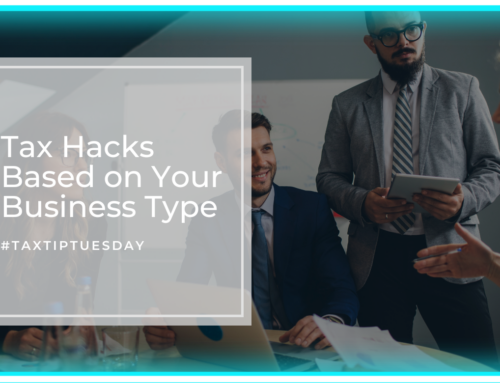Hi, I’m Bette Hochberger, CPA, CGMA. And on today’s Tax Tip Tuesday, we’re going to talk about your crypto mining business. I’ve been getting some calls, emails, et cetera, meetings with people setting up crypto mining businesses. Because why not? If you’re in Miami and you want some Miami coin, and maybe you want to go mine it. Well, you need to know some things if you’re going to start a crypto mining business. So first off, every time you mine a coin, it’s considered taxable income. Make sense. It’s kind of like if you have any other business and you perform a service or sell a good, whatever it is that you do in that business, it’s an income event, which means it’s taxable. And you most likely won’t get a 1099 from this from anyone, so you’re going to have to keep outstanding records to make sure you’re reporting all that income.
Now that income is taxed at ordinary rates, which is the value of the crypto you mine on that day. And now the IRS will tell you that if you’re in the business of mining crypto, that income, in addition to being subject to ordinary income tax, is also subject to self-employment tax, which is 15.3%. So now, if you’re self-employed, no matter what you do, whether it’s mining crypto or something else, you’re subject to those taxes. So that’s pretty much the same as if you were running any other kind of business.
So if you’re mining crypto on your own, and you’re doing it as a business, you’re going to file a Schedule C on your personal income tax return. The cool thing about this is that you’re allowed to deduct expenses against that income. So what kind of expenses are we looking at? Rent, electricity, cost of your gear or your rig, repairs, and maintenance. Anything related to running that crypto mining business is a legitimate business deduction to offset that mining income.
Now, because this is a business, you can set up other business structures. You don’t have to be a sole proprietor, which is what the default is if you’re only filing a Schedule C. So you could go and set up an LLC, an S Corp. You can talk to a CPA, maybe be if you want to figure out what the best structure is, but you absolutely can do it. Now, the thing you have to remember is just like every other business. If you’re going to do certain transactions, they are going to trigger certain things. For example, if you pay people, whether you pay them in crypto or if you pay them in fiat currency. If you pay them more than $600 during the year, you have to issue them a 1099 same as a regular business.
Now, what makes it a little bit more complicated is if you are paying people or doing any other transactions in the cryptocurrency, that’s a whole other taxable event in and of itself where we’re going to trigger the capital gain rates. So there’s a lot of moving parts when you’re in the crypto business world. You’ve got a lot of transactions to keep track of, and the most significant thing here I’m going to tell you is to keep good records, keep good records. Very, very important.
You don’t want to get in trouble with the IRS. You don’t want to have a problem with anyone. So good recordkeeping is what’s going to cover your butt. So what do you think? Are you going to start a crypto mining business? It might be very lucrative. Who knows? And if it is, you’re going to need some tax help. But let me know what you think about crypto businesses in general; drop a comment, and we’ll see you next time. Thanks.
On yesterday's #TaxTipTuesday, we talked about #cryptomining businesses,🔨 specifically how the company is taxed, and some #taxadvice from yours truly. 💰Check it out! https://t.co/fo7mCn7TLF pic.twitter.com/41LzlPvQbB
— Bette Hochberger, CPA, CGMA (@bettehochberger) November 10, 2021









